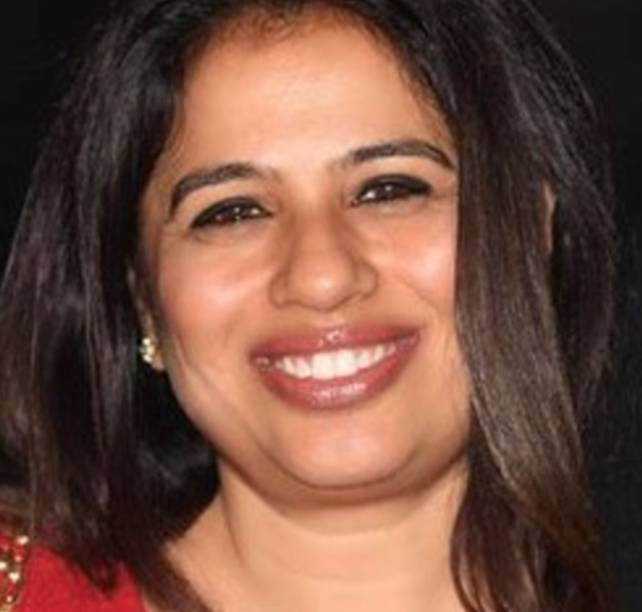Given the various curricula available today, the choice of curriculum best suited for your child is a difficult one to make. So, why should parents consider IB schools for their kids? I would like to share my first-hand experience with ABWA as an IB school and how it has helped my daughter grow over the past two years. The IBDP journey has not always been easy, but it has definitely been worth it.
IBDP, as a curriculum, ensures a holistic education for the students with different subject groups being covered as part of the curriculum. Studying 3 higher level subjects enables an in-depth learning and strong academic foundation in the areas of interest of the student. This is also supported by 3 other subjects at a standard level to give the student a well-rounded knowledge base. The diversity of subjects gave my daughter the freedom to choose her favourite subjects like biology and chemistry while keeping her career choices open. Learning a foreign language like Spanish gave her an opportunity to learn about another culture, which she absolutely loved. This breadth and depth of knowledge lays the foundation for a liberal arts education in university.
The teaching methods in IBDP are unique in a way that they require the students to apply the knowledge that they learn, not only memorise the contents. It instils critical thinking, analysis and evaluation skills. This extremely important skill holds them in good stead, not only in school and college, but also in life.
The coursework, or IAs, includes writing research papers in several subjects where students select their own topics and execute the task independently. This inculcates curiosity in learning and teaches them to apply their learnings. This facilitates independent learning, teaching children to take charge and builds their research and writing skills. It also instils in them patience and resilience, especially in science coursework when they have to patiently redo their experiments many times over till they get the required results. This prepares them for the rigorous coursework in universities too.
They are, of course, guided through this learning process by their teachers. Even during the pandemic, this coursework has continued from home. The kitchen became the biology and chemistry lab, the mother became the lab assistant and the teacher was on phone or video call monitoring the project, sometimes at late night hours! This experience will be forever etched in my child’s and my memory. We have felt extremely lucky at these times to have had a set of teachers at ABWA who are so invested in their students’ learning and success.
IBDP, as you may have made out by now, encourages students to think on their own and to find their own learning style and pace. Each student researches his/her own assignment in their own unique way, adds to it her own perspective and then presents it in her own special style. The independence of learning which comes from this whole process is unmatchable according to me.
What really sets IBDP apart from the other curricula are the core components of CAS (creativity, action, service), Theory of Knowledge (TOK), and the Extended Essay (EE). CAS allows students to build on their extracurricular activities in the three different strands and reflect on their experiences. Through the service strand, students have an opportunity to make a positive contribution to the local community, thus learning the importance of various issues in society. Interacting with underprivileged students in their service activities teaches them integral values such as compassion and equality. In this way, IB helps in the emotional and personality development of the children as well.
Through CAS, my daughter combined her passion for dance, making her dance journey more meaningful by teaching dance to underprivileged children. She discovered how much she enjoyed teaching, thus further sparking her passion. She also did various other projects as part of CAS, which were all enriching experiences. An added bonus for CAS, if you’re applying to US universities, is that it automatically builds a good extracurricular profile for the child!
TOK teaches them to question everything around them. It is integrated into every subject and encourages them to look at things from completely new perspectives. They question why and how we ‘know’ things (nature of knowledge). It stimulates their creativity in thinking and encourages them to form new ideas and perceptions about the world. I was amazed by the level of thinking and depth of research which went into my daughter’s TOK presentation, which was based on perception of abstract concepts. The TOK classes, which are held throughout the year in ABWA as a subject, help to build up their critical thinking over time. The feedback sessions held by the teacher at regular intervals gave her, and the other students, the confidence to dig deeper and think out of the box.
Writing the Extended Essay, a 4000 word research paper on a particular topic, is challenging, to say the least, but IBDP encourages this level of independent learning. The student chooses a topic, does the primary or secondary research required and presents her research paper. This encourages independent research and builds on their research skills. Since IB is very strict about plagiarism, they are taught to think on their own and produce original work. This inculcates a work ethic which pervades all other aspects of their life as well.
Since they are required to juggle all their academic subjects, TOK, CAS and EE along with various graded tests and their IAs, they learn an invaluable lesson in multitasking and time management. While this does put some pressure on the kids to produce quality outputs on time, they learn to work with the pressure and optimally use their time to complete their assignments and papers. I believe dealing with these deadline pressures has helped my daughter become a stronger person. The teachers and Miss Shalini, the IB head, always being available has greatly helped balance everything in this IB journey.
After two years of learning the IB way, they are prepared to face college life in more ways than one. The writing skills, research skills, and independent thinking provides a base for college life and helps them choose the right subjects for themselves. The curiosity of learning that has been stimulated by IBDP not only fuels their passion for learning, but also makes the step-up to college much easier.
Having experienced ICSE and CBSE curricula with our older child, we decided to shift to the IB curriculum for our younger child as we felt that the IBDP would give her a wholistic learning experience and facilitate personal growth as well. We have seen her enjoying learning for the sake of learning, researching for the joy of it, experimenting for the thrill of it and accepting the challenge to excel. As a parent, watching the journey and the development of our child over the past two years has given us the joy and satisfaction of making the right choice.
IBDP, as a curriculum, ensures a holistic education for the students with different subject groups being covered as part of the curriculum. Studying 3 higher level subjects enables an in-depth learning and strong academic foundation in the areas of interest of the student. This is also supported by 3 other subjects at a standard level to give the student a well-rounded knowledge base. The diversity of subjects gave my daughter the freedom to choose her favourite subjects like biology and chemistry while keeping her career choices open. Learning a foreign language like Spanish gave her an opportunity to learn about another culture, which she absolutely loved. This breadth and depth of knowledge lays the foundation for a liberal arts education in university.
The teaching methods in IBDP are unique in a way that they require the students to apply the knowledge that they learn, not only memorise the contents. It instils critical thinking, analysis and evaluation skills. This extremely important skill holds them in good stead, not only in school and college, but also in life.
The coursework, or IAs, includes writing research papers in several subjects where students select their own topics and execute the task independently. This inculcates curiosity in learning and teaches them to apply their learnings. This facilitates independent learning, teaching children to take charge and builds their research and writing skills. It also instils in them patience and resilience, especially in science coursework when they have to patiently redo their experiments many times over till they get the required results. This prepares them for the rigorous coursework in universities too.
They are, of course, guided through this learning process by their teachers. Even during the pandemic, this coursework has continued from home. The kitchen became the biology and chemistry lab, the mother became the lab assistant and the teacher was on phone or video call monitoring the project, sometimes at late night hours! This experience will be forever etched in my child’s and my memory. We have felt extremely lucky at these times to have had a set of teachers at ABWA who are so invested in their students’ learning and success.
IBDP, as you may have made out by now, encourages students to think on their own and to find their own learning style and pace. Each student researches his/her own assignment in their own unique way, adds to it her own perspective and then presents it in her own special style. The independence of learning which comes from this whole process is unmatchable according to me.
What really sets IBDP apart from the other curricula are the core components of CAS (creativity, action, service), Theory of Knowledge (TOK), and the Extended Essay (EE). CAS allows students to build on their extracurricular activities in the three different strands and reflect on their experiences. Through the service strand, students have an opportunity to make a positive contribution to the local community, thus learning the importance of various issues in society. Interacting with underprivileged students in their service activities teaches them integral values such as compassion and equality. In this way, IB helps in the emotional and personality development of the children as well.
Through CAS, my daughter combined her passion for dance, making her dance journey more meaningful by teaching dance to underprivileged children. She discovered how much she enjoyed teaching, thus further sparking her passion. She also did various other projects as part of CAS, which were all enriching experiences. An added bonus for CAS, if you’re applying to US universities, is that it automatically builds a good extracurricular profile for the child!
TOK teaches them to question everything around them. It is integrated into every subject and encourages them to look at things from completely new perspectives. They question why and how we ‘know’ things (nature of knowledge). It stimulates their creativity in thinking and encourages them to form new ideas and perceptions about the world. I was amazed by the level of thinking and depth of research which went into my daughter’s TOK presentation, which was based on perception of abstract concepts. The TOK classes, which are held throughout the year in ABWA as a subject, help to build up their critical thinking over time. The feedback sessions held by the teacher at regular intervals gave her, and the other students, the confidence to dig deeper and think out of the box.
Writing the Extended Essay, a 4000 word research paper on a particular topic, is challenging, to say the least, but IBDP encourages this level of independent learning. The student chooses a topic, does the primary or secondary research required and presents her research paper. This encourages independent research and builds on their research skills. Since IB is very strict about plagiarism, they are taught to think on their own and produce original work. This inculcates a work ethic which pervades all other aspects of their life as well.
Since they are required to juggle all their academic subjects, TOK, CAS and EE along with various graded tests and their IAs, they learn an invaluable lesson in multitasking and time management. While this does put some pressure on the kids to produce quality outputs on time, they learn to work with the pressure and optimally use their time to complete their assignments and papers. I believe dealing with these deadline pressures has helped my daughter become a stronger person. The teachers and Miss Shalini, the IB head, always being available has greatly helped balance everything in this IB journey.
After two years of learning the IB way, they are prepared to face college life in more ways than one. The writing skills, research skills, and independent thinking provides a base for college life and helps them choose the right subjects for themselves. The curiosity of learning that has been stimulated by IBDP not only fuels their passion for learning, but also makes the step-up to college much easier.
Having experienced ICSE and CBSE curricula with our older child, we decided to shift to the IB curriculum for our younger child as we felt that the IBDP would give her a wholistic learning experience and facilitate personal growth as well. We have seen her enjoying learning for the sake of learning, researching for the joy of it, experimenting for the thrill of it and accepting the challenge to excel. As a parent, watching the journey and the development of our child over the past two years has given us the joy and satisfaction of making the right choice.

 Online Admission
Online Admission Scholarship Programme
Scholarship Programme University Counselling
University Counselling Leadership
Leadership Voices at ABWA
Voices at ABWA